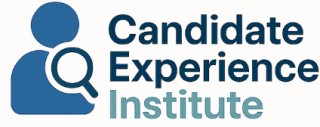Understanding Candidate Experience
Recognizing the Importance of Candidate Experience
Candidate experience plays a critical role in shaping an organization's reputation and can significantly impact the type of talent attracted to a company. In today's competitive job market, where potential employees often compare offers, a poor candidate experience can deter top talent from accepting job offers or even considering applying in the first place. Effective candidate experience isn't just about convenience; it offers an insight into how a company sets and achieves its goals, manages its team, and prioritizes employee growth and professional development. A positive experience reflects well on an organization’s leadership and management style, indicating a well-organized and communicative environment where future employees can thrive. Furthermore, in the process of recruiting, how candidates perceive your company's culture, care for employees, performance management, and goal-setting practices can be the decisive factor for job seekers exploring career opportunities. Organizations that demonstrate a clear path for skill development and a commitment to helping employees achieve their short and long-term goals are more likely to attract talent that is aligned with their organizational values and mission. For more insights on enhancing the candidate experience specifically in retail hiring, visit this resource. This could offer additional strategies that can be tailored to fit your organizational needs.Identifying Key Development Goals
Setting the Stage for Effective Development Goals
Identifying key development goals is a crucial step in enhancing the candidate experience. By setting clear, achievable objectives, organizations can not only attract top talent but also ensure that candidates feel valued and motivated throughout the recruitment process. Effective goal setting involves understanding both the immediate and long-term needs of the organization and aligning them with the aspirations of potential employees.
Here are some strategies to help you set effective development goals:
- SMART Goals: Ensure that goals are Specific, Measurable, Achievable, Relevant, and Time-bound. This framework helps in creating clear objectives that candidates can understand and work towards.
- Focus on Skills: Identify the skills and competencies that are essential for the role. This could include technical skills, communication skills, or leadership qualities. By focusing on these areas, you can set goals that enhance the candidate's professional development.
- Balance Short and Long-Term Objectives: While it's important to have immediate goals, don't overlook the importance of long-term career development. Encourage candidates to think about their future within the organization and how they can grow over time.
- Incorporate Performance Management: Use performance management systems to track progress and provide feedback. This not only helps candidates improve but also gives them a clear understanding of their career trajectory.
- Encourage Team Collaboration: Development goals should also foster teamwork and collaboration. By setting goals that involve working with team members, candidates can improve their project management and communication skills.
For a deeper dive into mastering the art of candidate experience and essential selection tips, you can explore more insights here.
Streamlining the Application Process
Streamlining the Application Process for Optimal Candidate Experience
Setting impactful development goals ensures that the candidate experience remains streamlined, benefiting both potential hires and organizations alike. As companies navigate the competitive talent landscape, it's critical to prioritize the efficiency of the application process, enhancing the overall journey for aspiring candidates. Simplifying this phase is a clear indicator of a well-executed candidate strategy.
For candidates and employers, goal setting plays a crucial role. Effective goals should be SMART (Specific, Measurable, Achievable, Relevant, Time-bound), aligning with the organization's performance management framework. This approach helps direct efforts in refining the application process, ultimately driving career growth and satisfaction for candidates transitioning into employee roles.
Key Areas to Enhance Application Efficiency:
- Clear Communication: Ensuring all information regarding the position, required skills, and the application timeline is transparent is fundamental. This not only empowers candidates but also improves their work-life balance by managing expectations.
- Technology Utilization: Leveraging platforms that utilize artificial intelligence and machine learning algorithms can significantly reduce the redundancy of the process. Automated systems for assessing resumes or providing timely updates can set a professional tone and aid in efficient time management.
- User-Friendly Platforms: Whether through an intuitive career page or a mobile application, ensuring seamless navigation fosters a more inclusive environment, reflecting the company's leadership in innovation and accessibility.
Moreover, resources like Project Management and Performance Tracking tools can help track progress and refine strategies over time. Regular feedback from both successful and unsuccessful applicants can illustrate valuable insights, enabling leadership teams to make data-driven decisions.
Exploring enhancing the remote candidate journey can further illuminate practices that support a positive candidate experience, blending technology and strategic planning to meet evolving workforce needs.
Improving Interview Techniques
Refining Interview Practices for Success
Improving interview techniques is a pivotal aspect of enhancing the candidate experience. A well-structured interview process not only reflects the professionalism of an organization but also serves as a critical touchpoint for candidates assessing their potential fit within a company. Here are some key strategies to consider:
- Goal Setting for Interviews: Establish clear objectives for each interview stage. This ensures that both the interviewer and the candidate understand the purpose of the meeting, whether it's assessing technical skills, cultural fit, or leadership potential.
- Training Interviewers: Equip your team with the necessary skills to conduct effective interviews. This includes communication skills, active listening, and the ability to ask insightful questions. Providing examples of SMART goals for interviewers can help in setting clear expectations.
- Structured Interview Framework: Develop a consistent interview framework to ensure fairness and objectivity. This can include predefined questions and a scoring system to track progress and performance.
- Feedback Mechanism: Implement a feedback loop where candidates can share their interview experience. This not only helps in refining the process but also demonstrates a commitment to continuous improvement and candidate engagement.
- Time Management: Respect the candidate's time by ensuring interviews start and end as scheduled. This reflects positively on the organization's time management skills and consideration for work-life balance.
By focusing on these areas, companies can enhance their interview techniques, ultimately leading to a more positive candidate experience and better alignment with long-term development goals. Remember, the interview process is not just an evaluation of the candidate, but also an opportunity for the organization to showcase its culture and values.
Leveraging Technology for Better Engagement
Harnessing Technology to Foster Engagement
In an era where technology is indispensable, leveraging it effectively can greatly enhance candidate engagement and satisfaction. Whether in the early stages of identifying goals or throughout the hiring process itself, technology serves as a vital tool to communicate and build relationships. Implementing advanced applicant tracking systems (ATS) can help in setting clear, strategic goals for managing the influx of applications. These systems streamline the process by aligning recruitment goals with technical innovation, thus freeing up time for HR teams to focus on more personal interactions. Technology can also assist hiring managers in tailoring performance goals. By using data analytics, managers can track candidate progress and professional development with precision. Smart goals embedded in project management software offer the opportunity to benchmark performance, thus ensuring clarity and alignment with company objectives. Communication platforms are another pivotal technological resource. Tools like video conferencing and collaborative software allow for more dynamic and flexible communication between potential employees and hiring teams. This capability is essential in providing clear, consistent feedback and in managing expectations. The integration of these tools supports both short-term successes and long-term career aspirations of candidates. Moreover, AI-driven chatbots and automated responses can handle routine inquiries, enabling HR professionals to dedicate more time to personalized candidate engagement. These technologies improve work-life balance, allowing recruiters to maintain efficiency while offering candidates a seamless and responsive experience. Emphasizing technology does not mean sidelining human interaction. On the contrary, it complements the skills and leadership qualities of recruitment teams, helping them to set, manage, and achieve optimal performance goals. By tracking the progress of candidates over time through these digital channels, companies can gather valuable insights that aid in decision-making and refine their recruitment strategies, ultimately enhancing the overall candidate experience.Measuring Success and Gathering Feedback
Evaluating Progress and Gathering Insights
Enhancing the candidate experience isn't a one-time effort. It's an ongoing commitment that requires continual evaluation and adjustment. By measuring success, companies can identify what's working and areas that need attention. Here, effective goal setting becomes crucial.- Track Progress with SMART Goals: Setting SMART (Specific, Measurable, Achievable, Relevant, Time-bound) goals can aid in tracking progress effectively. These goals help in quantifying achievements, ensuring that specific aspects of the candidate experience are targeted and improved over time. For example, setting short-term goals for response times or application process streamlining provides clarity on performance objectives.
- Utilize Performance Management Systems: Embracing performance management practices can help maintain a dynamic approach to measuring candidate experience. Leveraging these systems can help in identifying how well the current processes align with the intended development goals, as well as enhancing overall performance.
- Feedback Collection: Collecting feedback is pivotal. Tools such as surveys or suggestion boxes can encourage candidates to share their experiences. Gathering insights directly from them will illuminate the candidate journey from their perspective, offering valuable data to improve employee engagement.
- Incorporate Team Input: Regularly involve the team in discussions about enhancing the candidate experience. These conversations foster an environment of professional development, encouraging team members to share their insights and experiences. This not only helps in managing expectations but also enhances communication skills among teams as they work towards common goals.













